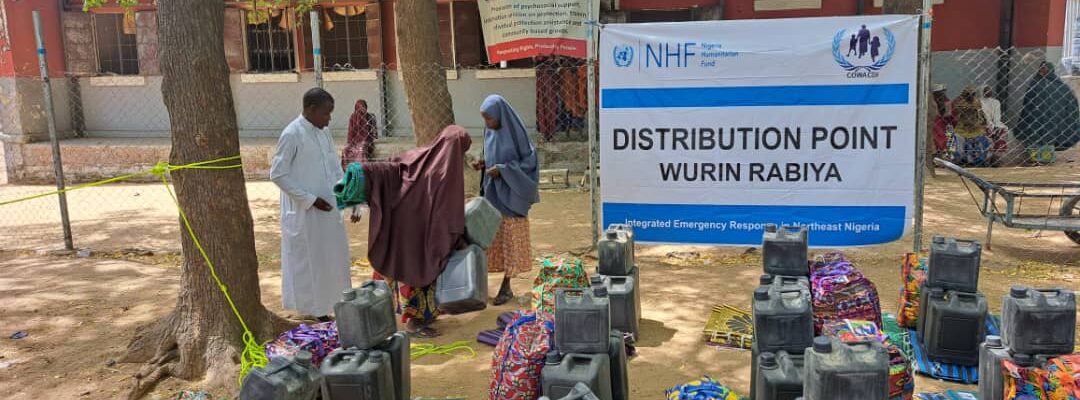Shelter and household essentials in Nigeria
Nigeria |2023| CBPF
Nigeria, Borno state. When fire broke out in a displacement camp in Monguno area, Aishatu lost her home and her household essentials, like mosquito nets, blankets and cooking supplies. “I lost sleep, thinking about how to survive with my children. Life has not been easy with the mosquitoes and the cold. I had to borrow a can to fetch water and had only one dish to cook and serve my family.”
Thirteen years on, the conflict in Nigeria’s north-east states of Borno, Adamawa and Yobe continues unabated. The impact of the conflict in the BAY states, home to some 16 million people, has created a protracted humanitarian and protection crisis affecting millions of people – including two million people displaced by the years of fighting.
Borno state hosts 3.9 million people in humanitarian need, including Aishatu.
Babaganu Madu, a father who was displaced with his wives and children, expressed similar concerns. “I have lost the dignity of my family because I can’t provide for their needs.”
Nigerian organization ‘Concern for Women and Children Development Foundation’ assisted some 800 families with basic household and essential shelter supplies with funding from the Nigeria Humanitarian Fund. .
The supplies – including hygiene kits, blankets, mattresses, water storage containers, mosquito nets, lamps, bathing and washing detergents, and cooking utensils were available for displaced people and for vulnerable members of the host community. An elderly man from the town said, “I came here with nothing. I have no money, so I can’t afford to buy even a small bowl in the market.”
For Aishatu, the supplies meant she could fetch water without borrowing a jerrycan from neighbours, cook more dishes for her family, , and use blankets instead of old clothing to keep the children warm at night.
Beyond the immediate impact, this support helped restore a sense of normalcy and dignity to the lives of these families.
Adapted from original stories from Concern for Women and Children.
For more information: visit the Nigeria Humanitarian Fund page; and find real-time contribution and allocation data on the POOLED FUNDS DATA HUB.
